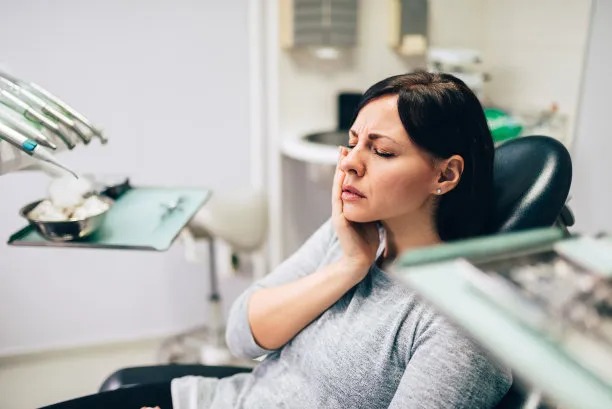Summary: The post-treatment phase after receiving dental fillings is crucial for ensuring optimal oral health and recovery. This article outlines essential guidelines to follow, emphasizing the importance of maintaining dental hygiene, managing post-procedure discomfort, adhering to dietary restrictions, and scheduling follow-up appointments. Each of these aspects plays a vital role in promoting healing and preventing complications, ensuring that the benefits of dental fillings are fully realized. By following these guidelines, patients can enhance their recovery process and maintain excellent oral health over the long term.
1. Importance of Maintaining Oral Hygiene

After receiving dental fillings, one of the most critical practices to uphold is effective oral hygiene. It is essential to brush your teeth twice a day with fluoride toothpaste, ensuring that you gently clean around the filling area. This practice helps prevent plaque buildup, which could lead to further decay or issues with the filling itself.
In addition to brushing, using dental floss daily is equally important. Flossing removes food particles and plaque from between teeth and around fillings. Focus on areas adjacent to the filling to maintain the integrity of the dental work and to support the surrounding teeth health.
Moreover, consider rinsing your mouth with an antibacterial mouthwash after brushing and flossing. This additional step can help reduce bacteria in your mouth, further protecting your fillings and overall oral health.
2. Managing Discomfort After the Procedure
It is not uncommon to experience some discomfort or sensitivity after receiving dental fillings. If you find yourself in discomfort, over-the-counter pain relief medications, such as ibuprofen or acetaminophen, can be beneficial. These medications can alleviate pain and inflammation, helping you feel more comfortable during your recovery period.
However, if the pain persists or worsens over time, it鈥檚 essential to consult your dentist promptly. Sometimes, sensitivity may arise due to various reasons, such as the type of filling used or underlying dental health issues, and your dentist can provide personalized advice and treatment.
Ice packs can also serve as a soothing remedy. Applying an ice pack to the exterior of your cheek can reduce swelling and numb the area if you feel tender around the filling site. Remember to use a cloth to wrap the ice pack and place it against your skin to avoid frostbite.
3. Dietary Restrictions for Recovery
Your diet plays a significant role in your recovery following dental fillings. In the immediate aftermath of the procedure, it is wise to steer clear of hard, crunchy, or sticky foods that could disrupt the filling or cause undue stress on your teeth. Soft foods like yogurt, mashed potatoes, and soup are great options during this initial healing phase.
Additionally, be cautious with hot or cold foods and drinks. Sensitivity may be heightened after dental work, and extreme temperatures could increase discomfort. Opt for lukewarm or room-temperature substances until sensitivity decreases.
Remember to avoid caffeinated beverages, alcohol, and acidic foods like citrus fruits that can irritate the healing site. Maintaining a balanced, gentle diet will aid in optimal recovery, ensuring your fillings serve their purpose effectively.
4. Importance of Follow-Up Appointments
Regular follow-up appointments with your dentist are essential after you receive dental fillings. These visits allow your dentist to monitor the condition of the fillings and ensure they are functioning correctly. It is advisable to schedule a follow-up examination a few weeks after the procedure and periodic check-ups thereafter.
During these appointments, your dentist can assess any sensitivity you may experience and make necessary adjustments. This proactive approach will help avoid more significant issues in the future and address any complications quickly.
In addition to keeping your fillings in check, these appointments give you an opportunity to discuss any concerns you may have about your overall dental health. Establishing a routine of regular dental visits is a proactive way to maintain long-term oral health and catch any potential issues early.
Summary:
Maintaining optimal oral health following dental fillings is pivotal. This article has discussed essential guidelines focusing on oral hygiene, managing discomfort, dietary restrictions, and the importance of follow-up appointments. Following these recommendations can significantly impact your recovery and the longevity of your dental fillings. Stay proactive about your dental health for a brighter and healthier smile!
This article is compiled by Vickong Dental and the content is for reference only.
Vickong Dental
Vickong Dental is a large medical group established in Hong Kong in 2008 by professors from well-known medical universities in Guangdong and Hong Kong, as well as medical doctors from key national '985' universities (including Master's supervisors and senior professors). The chain of branches brings together expert dentists with PhDs and Master's degrees from Hong Kong and Mainland China, committed to providing high-quality dental treatment.
"Vickong Dental Practices the University Motto of 'Healing and Serving Society,' with a Stable Operation for Sixteen Years. It Has Been honored with Hong Kong Enterprise Leaders's Choice,' and is a Global Trusted Implant Center for the Nobel Implant System. Recommended by Hong Kong Metro Broadcast and Guangdong Television, it Serves Customers from Over Thirty Countries and Regions, Gaining the Trust and Favor of Citizens from the Guangdong-Hong Kong-Macau Greater Bay Area and Surrounding Cities.

Thousands of customers' unanimous praise
The most recognized and highly recommended dental service by customers in the Guangdong-Hong Kong-Macau Greater Bay Area
We Ensure You Receive Detailed Care and Attention Here
Hong Kong standards, Shenzhen prices, Your Trusted English-speaking dentists

Vickong Dental Medical-Grade Instrument Disinfection Process
Vickong Dental Medical-Grade Instrument Disinfection Process

Vickong Dental Chain: A Warm and Comfortable Environment for Treatment






Appointment Hours

Q&A
Why choose Vickong Dental?
Vickong Dental practices the university motto 「Medicine to Benefit Society」, with each branch bringing together highly qualified dentists with doctoral and master’s degrees from Hong Kong and the Mainland, and has maintained seventeen years of steady operation。Recipient of 「2024 Hong Kong Enterprise Leaders Brand」, 「2025 Hong Kong Enterprise Leaders Brand」, a Nobel Biocare Global Trusted Implant Center, and a brand recommended by Metro Radio Hong Kong and Guangdong TV。
To date, we have served customers from more than thirty countries and regions,earning exceptionally high word-of-mouth recognition and trusted recommendations from residents across the Guangdong-Hong Kong-Macao Greater Bay Area and surrounding cities
We have eight major branches in Zhuhai、Shenzhen,and a consultation and service assurance center in Hong Kong,so you can book a free consultation at any time for any questions,which is very reassuring.
If I do not accept the quotation after the CT scan, will I be charged??
No! As long as the actual treatment has not started, you will not be charged any fees.
Will there be any additional charges during the treatment process?
No, there won’t be any additional charges. Before treatment begins, we will clearly explain the treatment plan and its corresponding fees. Only after the patient agrees and signs the consent form will we proceed with the dental service.
Can I pay in Hong Kong dollars?
Yes. Vickong Dental accepts payment in Hong Kong dollars. The amount will be converted based on the exchange rate of the day, and the applicable rate will be clearly communicated to you in advance.
Can I reschedule my appointment at any time?
Yes. Please contact us via **WeChat** or **WhatsApp** as early as possible, providing your original appointment time and details, along with your preferred new date and time slot for rescheduling.













